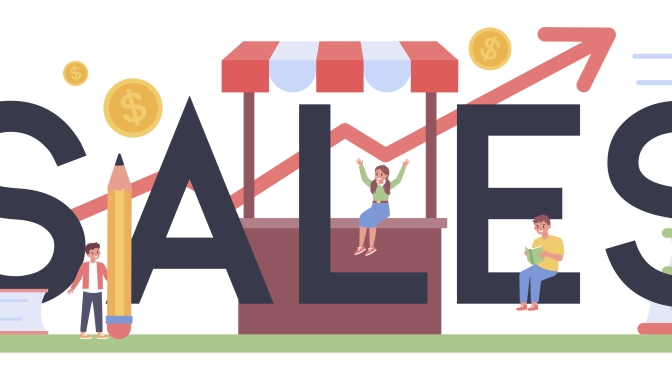Sales training improves the performance of sales reps that has a direct impact on the bottom line, from product knowledge to sales skills. Therefore, sales enablement training is at the top of the list of areas in which companies invest.
Questions that most sales teams may want answered are:
- What will captivate your sales audience?
- What will motivate your employees to complete your training and make sales?
Some of the most efficient sales enablement strategies we’ve discovered include keeping it short, providing learning at the point of need, and incorporating some friendly competition.

We’ve compiled a list of effective sales training practices and techniques from industry experts to assist you in developing compelling and effective sales enablement training programs.
- Emphasis on essential soft skills
Soft skills are effective as it allows meaningful conversation with potential customers. Soft skills such as communication, persuasion, boost your marketability.
The best salespeople are those who want to help their customers; they listen, are pleasant, and are upfront about whether a product or service will benefit their prospects. They cultivate relationships with their clients and get to know them. While some sales representatives are naturally good with people, it is critical to train soft skills such as listening, communication, and phone etiquette. Salespeople have a bad reputation for being pushy and abrupt. Including soft skills in your sales enablement plan will assist your reps in softening their approach, making them a pleasure to work with for both customers and you.
- Training about customers perspective
Sales enablement strategies emphasize product details and messaging, at the expense of explaining the buyers’ needs and challenges. Make the buyer’s journey a bigger part of your sales enablement training, both for new hire onboarding and learning reinforcement for your existing sales force. This can be accomplished by ensuring that buyer persona details, such as key business challenges, success metrics, and pain points, are included in your training curriculum (and then assessing your reps’ mastery of them).
You should also outline effective ways for engaging buyers at each stage of the buyer’s journey. Share persuasion techniques that can assist buyers in moving through the decision cycle. Is the prospect sold on your solution and trying to persuade other decision-makers to buy it? Outline sales enablement strategies for shortening the time it takes to make a purchasing decision.
You can combine sales enablement training with coaching exercises that need representatives to think like buyers on the spot.
- Highlight Trends in the Industry
It’s possible that your salespeople aren’t reading 30-page research reports on the state of B2B selling or your target markets. However, a 600-word blog post on current social selling tips is an excellent addition to your sales enablement strategies. Providing continuous education to your sales representatives is an essential part of sales enablement training. Incorporating outside perspectives into your training is critical because it reminds your employees that the profession is changing and encourages them to stay current.
For example, you can use sites like Quodeck, you could embed relevant research and news articles about target industries as required courses or attachments into training courses to ensure reps review them to complete their training. You could then include a knowledge-testing component that quizzes salespeople on key findings.
- Focusing on one area of expertise
We all have our strengths and weaknesses. There is no one skill that always closes the sale. In reality, sales representatives tend to lean toward specific skills and turn them into strengths. Curating sales enablement strategies that foster a culture of ongoing support. However, encouraging specialization and promoting those talents is the beginning. Your team also requires training to further develop those skills and ensure that their weaker areas are addressed. Try Quodeck for ideas on what topics and specialties to focus on and to generate sales leads and grow your business.
Conclusions
In conclusion, there is no one-size-fits-all approach to sales enablement training for success. However, the underlying foundation should point to learning and training culture.
Consider what kind of post-training reinforcements you’ll provide your team to help them continue their journey, and empower your sales team to succeed by encouraging continued growth. Make it the real goal of your sales team to learn how to absorb and apply new techniques, make changes, and track their results.


Wow Great Article! Explained very well the best practices of sales team.
LikeLiked by 1 person